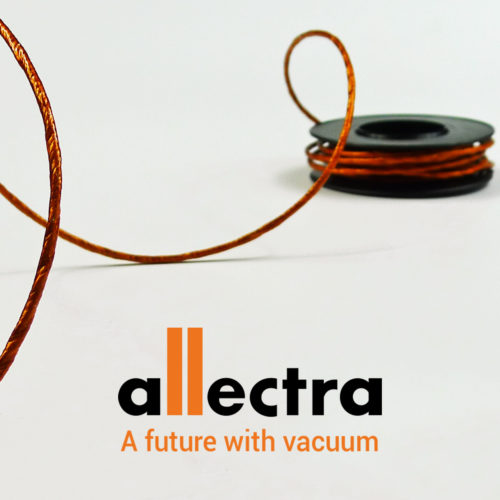The use of insulated wires is quickly becoming widespread. The prevalence of insulated wires has currently become a recognized fact, be it in the semiconductor manufacturing industry or research fields like materials or surface science.
Insulated wires are utilized in high-vacuum and ultra-high vacuum (HV/UHV) operations, where they connect motion elements and instrumentation, power high-technology electronics, and combine signals to and from detectors.
A great deal of experimental criteria and rigorous measures has been placed on these wires, including high-temperature compatibility, higher stability, limited outgassing, and much more. Manufacturers recommend the use of Kapton wires while working under the most challenging operating conditions.
Kapton-insulated wires possess a number of qualities that make them suitable for such applications. These qualities include remarkable low-thermal conductivity (W/mK) even at very high temperatures, limited outgassing, and unique thermomechanical stability, which collectively make them well-suited for use in demanding HV/UHV applications. This article describes the Kapton wires offered by Allectra.
HV/UHV: Why Use Kapton Wires?
Wiring harnesses are needed for electronic processes in UHV/HV systems, which maintain their distinct dielectric or electronic properties, even at pressure regimes less than 10−9 mbar. To ensure and safeguard the integrity of the internal conductor, the insulation should have low thermal conductivity even at very high temperatures.

The proprietary polyimide Kapton has excellent mechanical stability over a specifically extensive range of temperatures of about −269 °C to +400 °C (−452 °F to +752 °F). This mechanical stability emerges from Kapton’s low thermal conductivity, which enables shape retention in high processing temperatures.
Upon being used in wiring, Kapton typically sheaths silver-plated copper conductors of varying diameters, and could well be the site of current/voltage fluctuations caused by thermally induced physical differences.
When a high-performance Kapton is used to insulate such single or multistrand wires, a stable and powerful electrical supply is ensured for the duration of the processing, even in applications as severe as cryogenics and HV/UHV thermal processing.
The low outgassing rates of Kapton wires ensure that vacuum integrity is safeguarded from the potential compromise caused by the emission of gaseous species from polymeric wire sheaths. In addition, Kapton wires are used over the board in HV/UHV processes.
Wiring degradation can lead to several faults as a result of radiation damage or thermal deformation. This can then limit process yields or have an impact on the accuracy of results. The solution is to combine the high-performance insulation with the highest quality conductor materials, ensuring the testing of the product to assure vacuum compatibility.
These inhibitive parameters are routinely exceeded by Kapton wires. But until recently, one disadvantage of Kapton-insulated wires has been that they cannot resist or withstand radiation damage, which can emerge from different and multiple sources like X-ray, electron beams, infrared (IR), etc.
This disadvantage of the Kapton-insulated wires has been overcome with Allectra’s latest range of radiation-resistant Kapton-insulated wires, called KAP301.
Kapton Wires from Allectra
Allectra has recently expanded its Kapton-insulated wires to include the novel multi-stranded radiation-resistant KAP301, which makes sure that the products meet an even broader range of targets.
These KAP301 Kapton wires have been subjected to stringent testing for high-voltage performance at various temperatures, regulating for vacuum compatibility all through the radiation exposure.
The outcomes of these experimental tests underscore the long-term performance of Allectra Kapton wires, in a temperature ranging from −269 °C (4 K) up to 300 °C and radiation resistance of 109 Rad = 107 Gy. As far as radiation resistance is concerned, no other existing Kapton-insulated wires can match the KAP301 range available from Allectra.

In addition, the Allectra KAP301 range includes multistrand wire with diameters of 0.6, 0.35, and 0.25 mm, apart from the thermocouple wire, type N and K, coaxial wire, and Twisted Pair cable screened with outer insulation.

This information has been sourced, reviewed and adapted from materials provided by Allectra Limited.
For more information on this source, please visit Allectra.